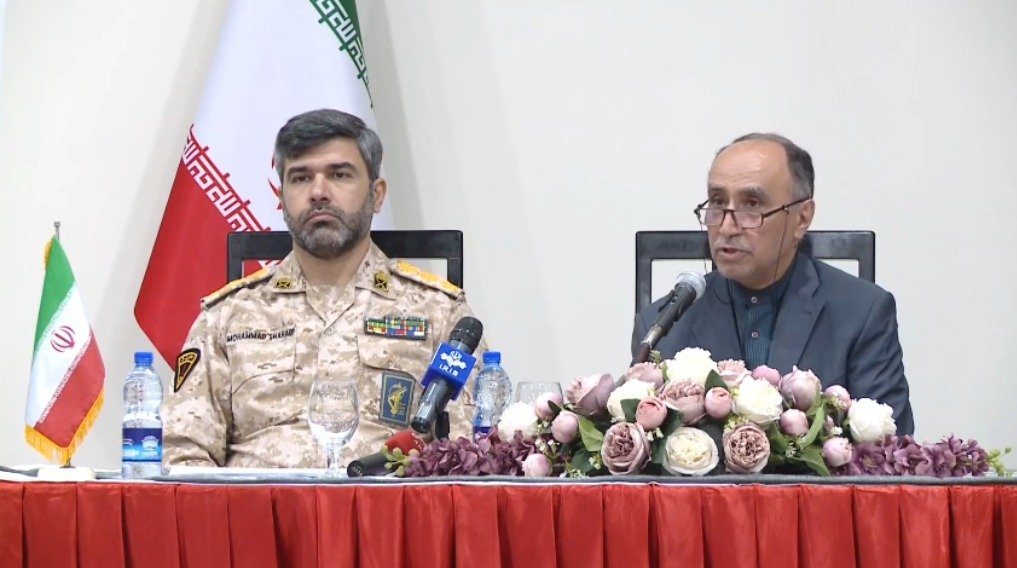
Illegality of Israeli Regime’s Aggression
Iran : Israeli regime’s military assault on Iran constituted a flagrant violation of Iranian sovereignty and territorial integrity, in direct breach of the United Nations Charter and international law. In light of these violations, the Islamic Republic of Iran exercised its inherent and legally recognized right to legitimate self-defense.
Nature of the War: The conflict erupted on June 13th, when Israeli regime launched coordinated strikes targeting senior Iranian military commanders and nuclear scientists. The attacks extended far beyond military objectives, hitting civilian, academic, industrial, residential, and cultural sites, including Evin Prison, hospitals, the Red Crescent, and State Broadcasting TV Chanel. The bombardment resulted in the martyrdom of at least 1,100 individuals, including 56 children, and left more than 5,800 injured.
Iran’s response focused strictly on Israeli military and security sites; any civilian casualties were likely collateral damage from Israel’s own defense systems. Iran employed only controlled portions of its military capabilities.
U.S. Air Base Attack in Al-Udeid
In a related development, Iran’s strike on the U.S. Al-Udeid air base followed an American attack on the Iranian nuclear facilities. Tehran stressed that the response was a legal act of self-defense and emphasized that the operation was not aimed at breaching Qatar’s sovereignty. This air base was chosen as it is far away from civilian populations and cities.
Attack on Nuclear Facilities
Iran’s nuclear program, subject to continuous supervision by the International Atomic Energy Agency (IAEA), was also targeted by the Israeli Regime and the United States. These attacks breached the UN Charter, violated the principles of the Nuclear Non-Proliferation Treaty (NPT), and undermined the sovereign rights of a member state engaged in peaceful nuclear activities.
Diplomatic Deceit and Betrayal
Diplomatic channels had ostensibly been active and negotiations on the process, yet U.S. President later alleged to give Iran a 60-day ultimatum, whereas Trump was committed to hold negotiations on day 63th on what he described as day 61st, Israel launched its strike. This sequence of events suggests the negotiations were a facade, strategically manipulated to cover preparations for military escalation. Israeli Prime Minister Benjamin Netanyahu confirmed that the operations were fully coordinated with Washington, contradicting U.S. claims of diplomatic engagement. Then on June 16th, Israeli Prime Minister Netanyahu admitted, “We coordinated with America. These strikes happened with Washington’s full knowledge,” while a few days earlier Trump had insisted negotiations with Iran were ongoing and that a strike on nuclear facilities by Israel was “possible but not imminent.”
On Sunday, June 22, Trump allegedly ordered the bombing of Iran’s nuclear sites, illustrating how the military action coincided with supposed diplomatic efforts – exemplifying the betrayal and deception of U.S. diplomacy.
Miscalculations:
Israel and its intelligence agency Mossad assumed Iran’s regime would collapse rapidly after eliminating key military and nuclear figures. They believed there would be political chaos and potential defections. Trump reportedly cautioned Netanyahu: “You know how to start a war, not how to end it,” and later admitted that an invasion of Iran would be a mistake. Meanwhile, Netanyahu advocated for “peace through strength,” a doctrine historically linked to global conflict escalation.
Regime Change Efforts
June 14, Netanyahu addressed the Iranian people directly, attempting to incite internal dissent. His statements made clear that the end goal was regime change. Planned operations included assassinations of top Iranian leaders and strikes against the Supreme National Security Council. However, these efforts failed. Iran quickly filled leadership vacancies and initiated self-defense through missile strikes. National cohesion intensified, and opposition figures aligned with a unified national defense effort. By June 15, Netanyahu stated that regime change through military force was possible, but as Iranian resistance strengthened, his rhetoric shifted.
Support for the Aggressor
On June 16, the G7 issued a statement affirming Israel’s “right to self-defense,” implicitly supporting the aggressor while ignoring the illegality of the initial assault. French President Emmanuel Macron and German Chancellor Olaf Scholz publicly backed Israel, further reflecting the geopolitical bias in favor of a nuclear-armed state that operates outside international treaty frameworks.
Irony and International Hypocrisy
It is indeed astonishing that a regime founded on occupation and terrorism – one that has shown no adherence to international treaties and is not a member of the NPT- has produced and stockpiled dozens of nuclear weapons without being subject to any supervision, while it attacks a country that is a member of the NPT and whose entire nuclear program is under full IAEA supervision, on the mere pretext of a potential shift toward weaponization. Some countries not only offered political support for this aggression but also provided operational assistance. Even the IAEA created the pretext for this act of aggression. The UN Security Council, which is supposed to safeguard international peace and security, remained silent in the face of this assault and was unable even to issue a statement of condemnation.
Intensified legitimate Iranian Self-Defense
By Tuesday, June 17, Iran’s military response had notable effect, with Israeli defense concerns mounting. Iranian missile strikes intensified during the sixth day of the conflict. An Israeli officer noted that Israel was being hit “like Khan Younis in Gaza.” By day eight, Iran’s strikes escalated further. Without direct U.S. intervention, Israel could not sustain the conflict. Netanyahu faced mounting internal and external pressure. Israel realized it had overreached and attempted to draw the U.S. into the war. U.S. advisors cautioned Trump not to be ensnared in Netanyahu’s strategy, warning that Israel “knows how to begin a war, not how to end it.”
Psychological Warfare & Intimidation
Following the G7 summit, Trump demanded that Tehran “immediately evacuate” and ordered U.S. military engagement. This was intended to instill fear and panic across Iranian cities and economy. Trump insisted Iran must “surrender unconditionally,” claimed to know the location of Iran’s leader, and urged his removal. But Supreme Leader Khamenei responded resolutely, stating: “Iran will never surrender.”
Ceasefire Process
June 21, France, Germany, and the United Kingdom proposed a comprehensive peace plan. Even Macron, who had defended Israel at the outset, called for diplomacy. By June 23, messages from Western powers shifted tone, no longer speaking from a position of dominance but from one of damage control. Iran launched 14 heavy missiles at U.S. positions, prompting Washington, through intermediaries in Qatar, to request a ceasefire. Iran’s approval of the ceasefire was conditioned on a complete halt to Israeli aggressions.
Nuclear Program and Defensive Doctrine
The IAEA reports confirm Iran’s nuclear program is peaceful with no diversion. Building nuclear weapons isn’t part of Iran’s defense doctrine or deterrence strategy, and is forbidden by the Supreme Leader’s fatwa. The attacks on Iran’s nuclear infrastructure constitute gross violations of the UN Charter, the non‑proliferation regime, and relevant UN Security Council resolutions (including Resolution 2231). These attacks amount to war crimes and an assault on a UN member state. Despite IAEA’s reports affirming Iran’s compliance, recent skewed statements by the agency’s leadership provided Israel and the U.S. a pretext for aggression.
Results of Iran’s Defense Resistance
Despite the plans to destabilize the regime by eliminating top commanders and scientists, Iran proved resilient. Replacement procedures were swift.
During the 12-day conflict, national unity strengthened and support for the military surged.
Israel’s myth of invincibility was shattered; Israeli officials requested ceasefire after facing Iran’s counterstrikes.
Pan-Islamic solidarity emerged, with numerous Muslim-majority countries – especially Pakistan – expressing unequivocal support and solidarity with for Iran.
The Path Forward
Under the UN Charter, Iran has the very right to legitimate self-defense. If Israeli regime’s aggression stops and verified guarantees are provided pledging no future violations of Iran’s sovereignty and territorial integrity, the Islamic Republic will resume negotiations.
However, given the lack of trust in Israeli regime and its U.S. ally, Iran’s armed forces remain committed to a firm enforcement of any ceasefire. Any further hostile or aggressive acts will be met with a stronger and more devastating Iranian defense.
The international community must act to prevent a full-scale regional war triggered by provocative Israeli actions and unconditional U.S. support. It is imperative to reject state-sponsored terrorism and stop further escalations that could destabilize this already volatile region.
Sohail Majeed is a Special Correspondent at The Diplomatic Insight. He has twelve plus years of experience in journalism & reporting. He covers International Affairs, Diplomacy, UN, Sports, Climate Change, Economy, Technology, and Health.





![logo-1[1]](https://globalnewspakistan.com/wp-content/uploads/2025/01/logo-11-e1737618310315-300x187.png)